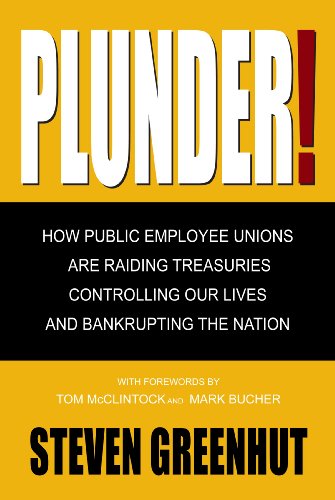Things were sure different when I was growing up. My parents taught me the value of a strong work ethic because that was how you got ahead in life. I shoveled snow off neighborhood driveways starting at age 10, and by the time I hit 13 I was busing tables at local restaurant where, at 16, I became a waiter. In high school I hit the books hard with dreams of going to college and becoming a doctor, lawyer, or Fortune 500 CEO. Sadly, our society has allowed itself to drift in an altogether different direction.
 Plunder: How Public Em...
Best Price: $2.28
Buy New $11.01
(as of 12:55 UTC - Details)
Plunder: How Public Em...
Best Price: $2.28
Buy New $11.01
(as of 12:55 UTC - Details)
“Anyone who wants to work an interesting job, earn a generous salary, enjoy unbeatable, rock-solid job security and, most importantly, advance the public good in pivotal ways would probably favor the federal sector,” said Lily Whiteman, Federal Careers Expert. This quote represents a troubling new reality in today’s American society: The public sector has become more attractive than the private sector. Today, however, government favoritism toward public workers has skewed the sense of values that are the American capitalist hallmark. Ms. Whiteman continues on to say, “…government employees seem to work shorter hours, have more vacation time, access unbelievable health care, never worry about job security and even make more money than people slugging it out in the private sector.” Sounds like a dream job, right? Work less, don’t worry about losing your job over poor performance, get better benefits, and get paid more for doing a job that contributes very little to the nation’s output. So what, now, are parents supposed to tell their kids, “Weasel your way into a government job and you’ll be set for life”? The reality of the situation is that the government always looks out for its own, even when the economy is spinning down the toilet.
The growth of public-sector compensation and benefits in the context of a global recession is not only a travesty, it’s a serious impediment to the future growth of our country. Why would a graduate from a top university pursue a job in the private sector (in which jobs are now even more scarce) when, after nine years of pay hikes and benefits in the context of a struggling economy, the compensation of federal civil servants is now, on average, twice that of private-sector workers?
August 14, 2010





